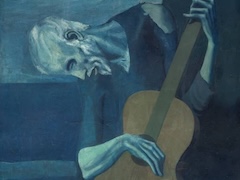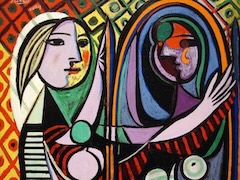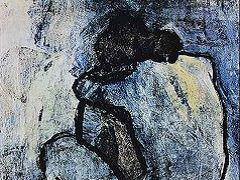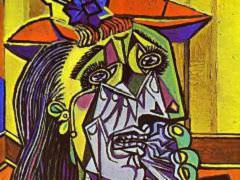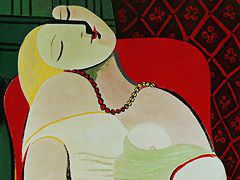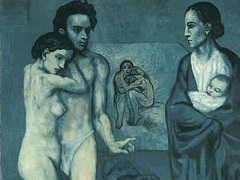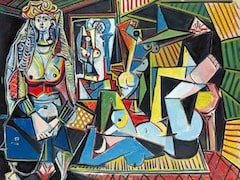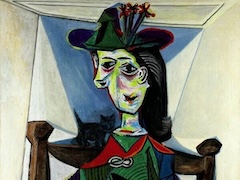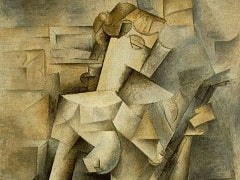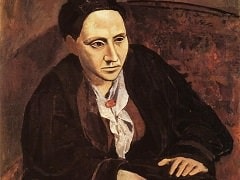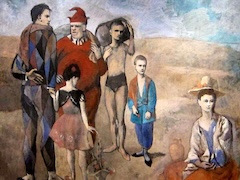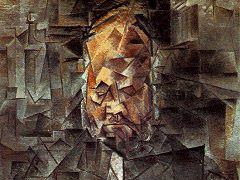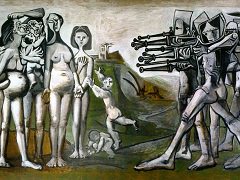Nude in a Black Chair, 1932 by Picasso
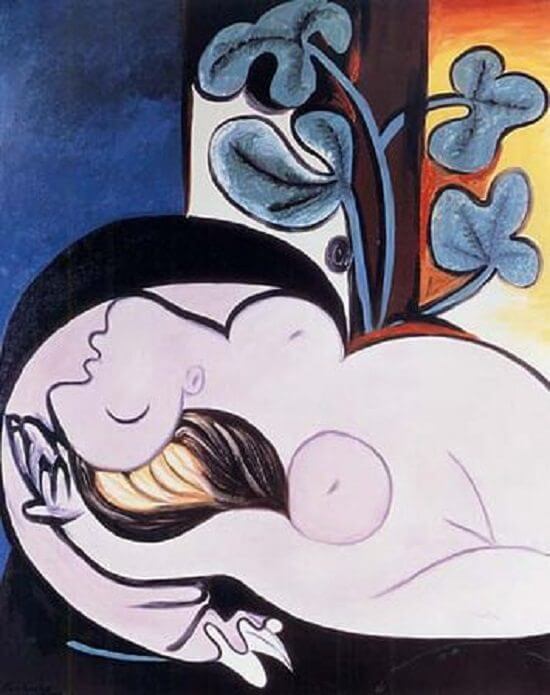
In Nude in a Black Chair, which is dated 9 March 1932, the sleeping woman, who seems to swell and unfurl like a growing plant within the elastic cocoon of her skin, sprouts philodendron leaves from beneath her breast as if she were a goddess of the plant kingdom. The identification is total in paintings where parts of her body are metaphorically equated with fertile cells, sprouting seeds, ripe fruit, verdant foliage and so forth. In one extraordinary emblem-painting of spring 1932, Reclining Nude the consummation of the union between woman and nature depends not only on the transparency of the metaphors (profile as silvery half-moon, breasts as brimming cells, stomach and pubis as fledgling bird, arm as sprouting seed, leg as unfurling leaf, et cetera), but on the way the rhythmically undulating contours bind the disparate parts together. It is as if we are witness to a metamorphosis activated by the burning sun framed in the glasshouse window, a metamorphosis which produces waves of life-giving energy symbolized in the sizzling patterns of fire and vapor dancing against the wall behind.
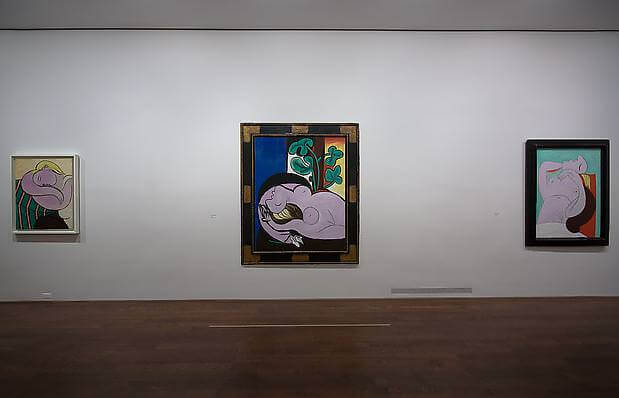
This kind of symbolic imagery was the hallmark of Joan Miro's Surrealist painting: in Nude, 1926, for instance, the head is also an egg, the waving hair a flag, the body a seal, the sex a leaf and so on. The two painters were in regular contact at this time and Picasso, who pushed dealers and collectors in Miro's direction, was always eager to see his latest pictures, and delighted him by saying that their work had things in common because 'we inhabit the same world'. But although he may have been influenced by Miro's imaginative use of metaphor and symbolism, in these erotic paintings Picasso retained the traditional iconography of the reclining nymph or goddess, blending the landscape and the interior settings of famous masterpieces in the genre such as Sleeping Venus by Giorgione and Venus of Urbino by Titian.



